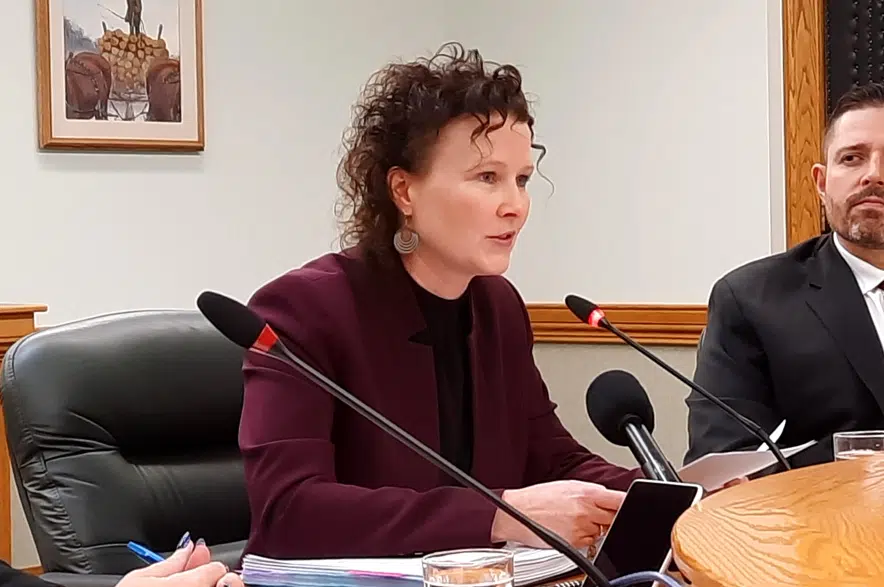The Saskatchewan auditor believes there’s more the Saskatchewan Health Authority (SHA) could do to bring in hard-to-recruit health-care workers quicker.
Auditor Tara Clemett released the second volume of her report for 2022 on Tuesday afternoon, detailing the investigation into the hard-to-recruit health-care positions.
The auditor’s office found there are expected to be 2,200 staff shortages in hard-to-recruit positions over the next five years, including 840 continuing care assistants, 520 registered nurses and 180 medical lab technicians.
The auditor found the authority needs more-targeted plans to fill the gaps.
“The authority needs to determine ways to increase its supply of hard-to-recruit staff in order to fill significant staffing shortages, and ensure it fosters working conditions that encourage staff to stay, especially in roles where it needs them the most,” read the report.
To fix the problems, Clemett said the SHA is going to have to do something new.
“You’re not going to find those staff probably just by doing what we’ve been doing,” said the auditor.
According to the report, the needs include continually measuring which programs are working and which aren’t, and looking at the post-secondary training seats out of the province and student clinical placements to see if they’re a successful part of recruitment strategies.
However, Clemett said it can’t just be about bringing new people into the province. It’ll be difficult because it’s something the entire country is looking to do, and won’t address immediate problems.
The report also said the SHA needs to establish a First Nations and Métis recruitment and retention plan.
Clemett said it’s important just from a diversity perspective, but it also follows that people who live in rural and remote communities — if they’re trained — would be more willing to go back and provide those services to their communities.
And finally, the auditor’s office also said the authority should compile and analyze the results of employee exit interviews.
“They don’t know why people are leaving and if there’s something they could be doing better to keep them here,” Clemett said.
Clemett said to be able to keep health-care services going and keep people in jobs in Saskatchewan, the health authority has to keep that as a focus. She also said it’s worth looking at community supports, particularly for rural and remote positions, like providing daycare, housing options and local spousal employment.
The auditor’s report also talked about the need to identify where staff shortages are. She said the health authority didn’t have a breakdown of where the job vacancies were greatest.
The authority and provincial government did release a health and human resources plan aimed at filling the health-care staffing gaps. Clemett said that plan is relatively comprehensive, and it’s the first step to making sure they have a good understanding of the needs, but also said it’s about the strategies in the plan and some could be more targeted.
Clemett also said it’s a bit worrisome it took so long to have a formal plan.
“It is something that I would have envisioned you had sooner,” she said. “Once you’d basically centralized and become one overall provincial health authority, you’d think, at that point, you would have went through and figured out ‘What is my overall expectations in terms of service delivery, how many staff do I need to meet those objectives, and do I have everybody I should?’ ”
Clemett said there is an urgency to this situation.
“At the end of the day, there are health-care service disruptions occurring in our province, in the various facilities. They have the website they maintain but it does indicate we have emergency rooms (and) we have lab services that are not available to the people of Saskatchewan because they don’t have staff to work to deliver those services,” explained Clemett.











